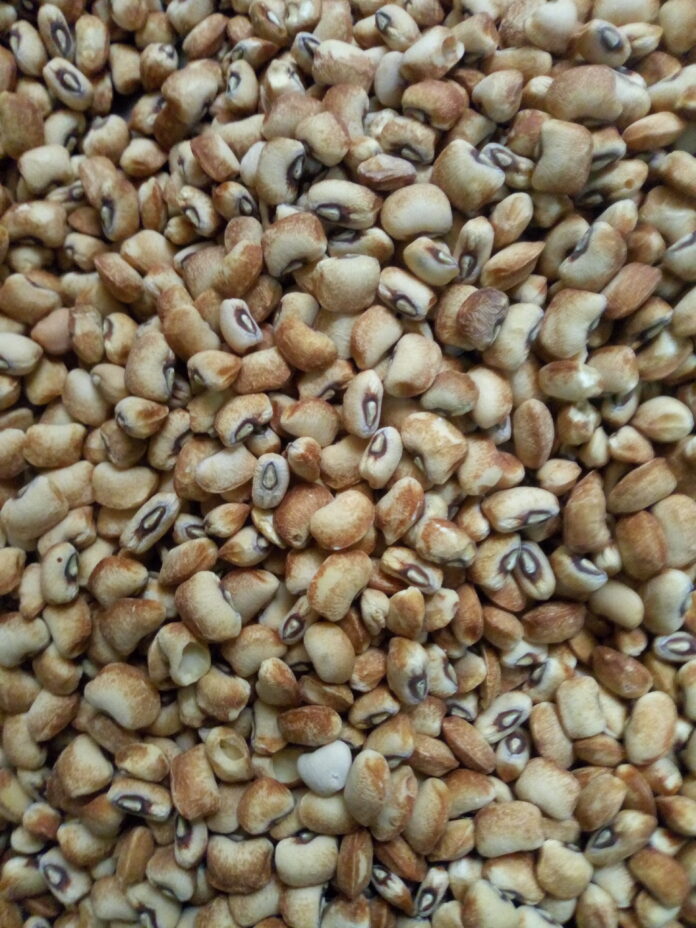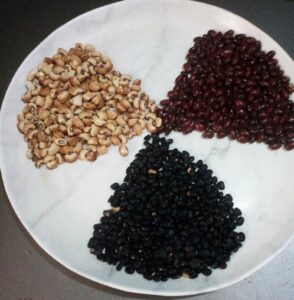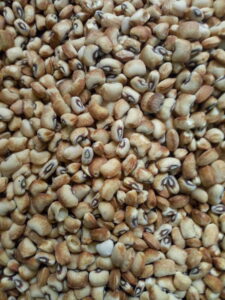The Health Benefits Of Beans
Beans are one of the most ancient and versatile foods known to humans. They’ve been a staple in cuisines around the world for thousands of years, providing sustenance, nourishment, and flavor to countless dishes.
Yet, despite their impressive nutritional profile and culinary versatility, beans are often overlooked in modern diets. They’re frequently relegated to the sidelines, seen as a mere side dish or a humble ingredient in soups and stews.
Beans as a nutritional powerhouse, is packed with protein, fiber, vitamins, and minerals that can help support overall wellbeing. Whether you’re a seasoned foodie or a curious cook, we hope to inspire you to get creative with beans and unlock their full potential.
Nutrition Facts of beans
Here are some key nutritional facts about beans:
Protein content
– 1 cup cooked beans = 15 -18 grams protein
– Comparable to meat, poultry, and fish
Fiber
– 1 cup cooked beans = 9-11 grams fiber
Vitamins and Minerals
– Folate (70 – 80% DV)
– Manganese (30 – 40% DV)
– Copper (20-30% DV)
– Phosphorus (15-20% DV)
– Iron (10-15% DV)
– Zinc (10-15% DV)
Antioxidants
– Polyphenols, flavonoids, and anthocyanins.
Contain Prebiotic Fiber
Fermented Bean Products Contain Probiotics: Fermented bean products, like fermented bean paste or fermented soybeans, contain live probiotic cultures.
Low in:
– Fat (less than 1g per cup)
– Calories (200-250 per cup)
– Sodium (less than 1mg per cup)
Glycemic Index:
– Low to moderate (30-50). Source
Office of Dietary Supplements. (n.d.). Beans. United States Department of Health and Human Services. Source.
Keep in mind that exact nutritional values may vary depending on the type of bean, cooking method, and specific ingredients used.
The Health Benefits Of Beans
Here are some of the key health benefits of eating beans:
- High in Protein: Beans are an excellent source of plant-based protein, needed for tissue repair and body building. Making them ideal protein source for both vegetarians and non-vegetarians
- Rich in Fiber: Beans are high in dietary fiber, which can help lower cholesterol levels, promote digestive health, and support healthy blood sugar levels.
- Low in Fat: Beans are low in fat and calories, making them an excellent addition to weight management diets.
- Antioxidant-Rich: Beans contain a variety of antioxidants, which can help protect against chronic diseases like heart disease, cancer, and cognitive decline.
- Supports Heart Health: The fiber, potassium, and antioxidants in beans can help lower blood pressure, cholesterol levels, and inflammation, all of which can contribute to a reduced risk of heart disease.
- Can Help Manage Blood Sugar: Beans have a low glycemic index, making them an excellent choice for people with diabetes or those trying to manage their blood sugar levels. Source.
- Supports Healthy Gut Bacteria: Beans contain prebiotic fiber, which can help feed the good bacteria in the gut, promoting a healthy gut microbiome. Source.
- May Reduce Cancer Risk: The antioxidants, fiber, and other nutrients in beans have been shown to reduce the risk of certain cancers, including colon, breast, and prostate cancer. Source
- Supports Bone Health: Beans are a good source of several minerals, including calcium, magnesium, and potassium, which are essential for maintaining strong bones.
- Can Help with Weight Management: Beans are low in calories and high in fiber and protein, making them an excellent addition to weight loss diets.
- Rich in iron:
Beans are rich source of iron, an essential nutrient that plays a crucial role in many bodily functions.
Here are some key points about beans and iron:
1. High iron content: Beans, particularly kidney beans, black beans, and chickpeas, are high in iron.
2. Iron absorption: The iron in beans is non-heme iron, which has a lower absorption rate compared to heme iron found in animal products.
3. Vitamin C enhancement: Consuming beans with vitamin C-rich foods, like citrus fruits or bell peppers, can enhance iron absorption.
4. Cooking methods: Cooking beans in cast-iron cookware or with acidic ingredients like tomatoes can increase iron absorption.
5. Iron deficiency prevention: Regular consumption of beans can help prevent iron deficiency anemia, particularly in vegetarians and vegans. Source
How to maximize the health benefits of beans
Eat a variety: Include different types of beans in your diet to get a range of nutrients.
Cook them properly: Cooking beans can increase their nutritional value and digestibility.
Soak and sprout: Soaking and sprouting beans can reduce phytic acid and lectins, making their nutrients more bioavailable.
Add aromatics: Saute onions, garlic, and ginger before adding beans for enhanced flavor and nutrition.
Use herbs and spices: Certain herbs and spices, like cumin and turmeric, can enhance bean digestion and nutrient absorption.
Combine with whole grains: Pairing beans with whole grains creates a complete protein and enhances nutrient absorption.
Add healthy fats: Adding healthy fats like olive oil or avocado can enhance nutrient absorption and flavor.
Experiment with fermentation: Fermenting beans can increase their nutritional value and create probiotics. And
Consume regularly: Aim to eat beans at least 2-3 times a week to reap their health benefits. Source
Myths and facts about beans
Here are some common bean-related myths and facts that has limited the intake of beans:
Myth 1: Beans cause gas and bloating.
Fact: While beans contain raffinose, a complex sugar that can be difficult to digest, soaking, cooking, and gradual introduction can minimize discomfort.
Myth 2: Beans are high in calories.
Fact: Most beans are low in calories and high in fiber, protein, and nutrients, making them a nutritious addition to a weight management diet.
Myth 3: Beans are only for vegetarians and vegans.
Fact: Beans are a versatile ingredient that can be enjoyed by everyone, regardless of dietary preferences or restrictions.
Myth 4: Beans are difficult to cook.
Fact: Beans are relatively easy to cook, with simple methods like soaking, boiling, and pressure cooking.
Myth 5: Beans are not a complete protein.
Fact: While beans lack one essential amino acid, pairing them with whole grains, nuts, seeds, or meat/fish products creates a complete protein.
Myth 6: Beans are high in phytates, which inhibit nutrient absorption.
Fact: Phytates in beans can be reduced through soaking, cooking, and fermentation, and their benefits outweigh potential drawbacks. Source: https://www.healthline.com/nutrition/beans-facts-myths
Social significance of Beans
In different cultures, beans are a highly valued and versatile ingredient, playing a significant role in various aspects of life:
Food security: Beans are a staple protein source, particularly for low-income households, providing essential nutrition.
Cultural identity: Beans are a key ingredient in traditional Nigerian dishes like akara (fried bean cakes), moi moi (steamed bean pudding), and egusi soup.
Hospitality: Beans are often served to guests as a sign of respect and welcome.
Special occasions: Beans are a central ingredient in dishes served during celebrations like weddings, festivals, and holidays.
Economic importance: Beans are a vital crop for smallholder farmers, providing income and employment opportunities.
Medicinal uses: Beans are used in traditional medicine to treat various ailments, such as fever, diarrhea, and respiratory issues.
Symbolism: Beans are associated with fertility, abundance, and prosperity, reflecting their role in sustaining life and community.
Regional variations: Different regions have unique bean-based dishes, showcasing the country’s culinary diversity.
Spiritual significance: In some cultures, beans are believed to possess spiritual powers, used in rituals and ceremonies for protection, blessings, and guidance.
By understanding the social significance of beans, we can appreciate the depth of their importance beyond just being a food item.
Bottom line
In conclusion, beans are a nutritional powerhouse, offering an impressive array of health benefits that can transform your overall well-being. From reducing the risk of chronic diseases like heart disease, diabetes, and certain cancers, to supporting healthy digestion, weight management, and mental health, the advantages of incorporating beans into your diet are undeniable.
With their rich mix of protein, fiber, vitamins, and minerals, beans are an affordable and versatile food that can be enjoyed in a variety of dishes, making it easy to reap their rewards. So, make beans a staple in your kitchen and start experiencing the incredible health benefits they have to offer!







Is beans a protein source, if yes, to what degree?
Yes beans is a protein source.
It is a rich source of protein.